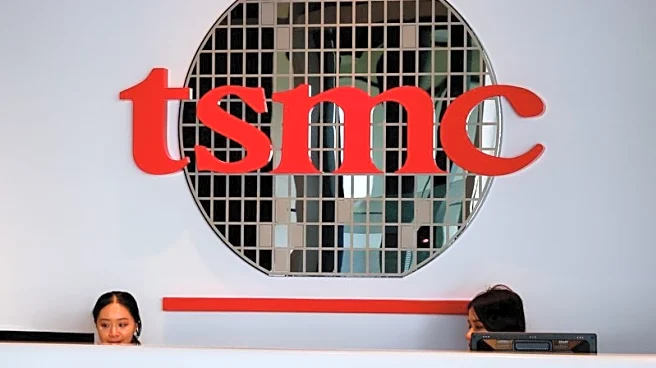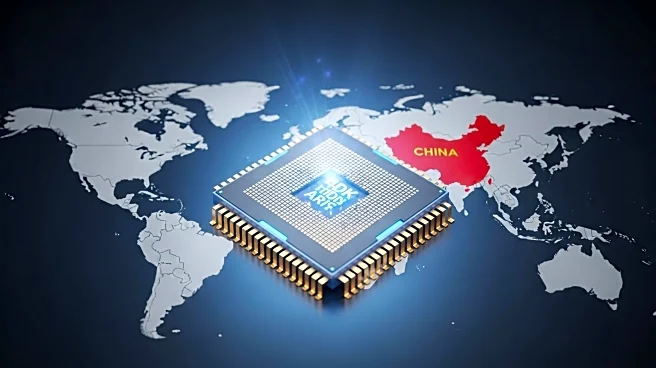What's Happening?
The U.S. government has informed Taiwan Semiconductor Manufacturing Company (TSMC) of its decision to revoke the company's authorization to export advanced technology to its Nanjing facility in China. This move is part of broader restrictions aimed at safeguarding U.S. economic interests. TSMC, the world's largest semiconductor manufacturer, produces chips for various tech devices and clients like Nvidia. The revocation is expected to disrupt TSMC's manufacturing capabilities in China, although the impact on its overall operations is anticipated to be limited. The Nanjing facility primarily produces older-generation devices, contributing a small portion to TSMC's total revenue.
Why It's Important?
The revocation of TSMC's authorization is significant as it reflects ongoing tensions in China-U.S. relations, particularly in the technology sector. This decision could lead to increased costs and complications for TSMC, as suppliers from the U.S. will need to apply for individual approvals to ship products. Additionally, Chinese customers may be forced to turn to domestic alternatives, potentially spurring innovation within China. The move also highlights the U.S. government's efforts to control the export of advanced technology to China, impacting global tech firms and their operations.
What's Next?
TSMC is assessing the situation and plans to engage in discussions with the U.S. government to ensure the uninterrupted operation of its facility in China. The company remains committed to maintaining its operations despite the revocation. The broader implications for other semiconductor manufacturers, such as Samsung and SK Hynix, who faced similar restrictions, could lead to shifts in global supply chains and increased reliance on domestic production in China.













